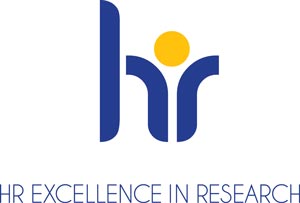For some time now, OGS has adapted its personnel policies to European guidelines by adopting the principles of the European Charter for Researchers and the Code of Conduct for the Recruitment of Researchers.
The actions undertaken have allowed OGS, already in 2013, to obtain, as the first Italian public research organization, the "Human Resources Excellence in Research" recognition.
In 2016, an initial verification process of the effective implementation of the principles of the Charter and of the Code was passed and, in 2023, a new action plan was prepared to obtain the renewal of the recognition. In 2024 the European Commission confirms the Human Resources Excellence in Research recognition to the OGS as part of the Human Resources Strategy for Researchers (HRS4R).
OGS joined the San Francisco Declaration on Research Assessment (DORA) in 2021 on internationally shared best practices for research assessment that aims to eliminate journal-based metrics, such as Impact Factor, as a surrogate measure of the quality of individual scientific articles to evaluate the contributions of an individual researcher or in hiring, promotion or funding assignments.
In 2024 OGS has officially become a member of the Coalition for Advancing Research Assessment CoARA, that aims to redefine research assessment methods and practises through a partecipatory process.
The new action plan promotes a staff management policy as a tool to consolidate the process of qualified professional growth, to strengthen the sense of belonging to the institution and to ensure greater effectiveness and efficiency in the management of the institution.
The main activities on which OGS intends to focus are:
- excellence in human resource management;
- attraction and circulation of talents;
- staff training;
- improvement of transparency and internal communication;
- improvement of the working environment;
- improvement of working time management.
OGS provides training for staff in the early stages of their careers and enables the development and transfer of research skills, including training programs and fellowships.
The effective implementation of the Charter and Code is strategic for OGS to support careers, to promote a stimulating and supportive working environment and to make the institution more attractive to researchers looking for a new employer or hosting their research project.
What is the European Charter for Researchers?
The European Charter for Researchers is a set of general principles and requirements which addresses the roles, responsibilities and entitlements of researchers and their employers or funding organisations. It aims to ensure that the relationship between these parties contributes to successful performance in the generation, transfer and sharing of knowledge, and to the career development of researchers.
What is the Code of Conduct for the Recruitment of Researchers?
The Code of Conduct for the Recruitment of Researchers is a set of principles and requirements that aim to improve recruitment, to make selection procedures fairer and more transparent, and proposes different means of judging merit. For example, merit should not just be measured on researcher’s publications, but on a wider range of evaluation criteria, such as teaching, supervision, teamwork, knowledge transfer, management and public awareness activities.

HR Excellence in Research documents:
European Charter for Researchers and on a Code of Conduct for the Recruitment of Researchers
Guidelines for recruitment and career advancements OTM-R
See also:
San Francisco Declaration on Research Assessment (DORA)
Sustainable Development Solutions Network
Coalition for Advancing Research Assessment CoARA
OGS reference documents:
Integrated plan of activities and organization 2023-2025
Gender and equality plan 2022-2024
Open Access policy of OGS for scientific publications
Recognition of research periods abroad
Code of ethics
Useful links:
HR Excellence in Research documents:
European Charter for Researchers and on a Code of Conduct for the Recruitment of Researchers
Guidelines for recruitment and career advancements OTM-R
See also:
San Francisco Declaration on Research Assessment (DORA)
Sustainable Development Solutions Network
Coalition for Advancing Research Assessment CoARA
OGS reference documents:
Integrated plan of activities and organization 2023-2025
Gender and equality plan 2022-2024
Open Access policy of OGS for scientific publications
Recognition of research periods abroad
Code of ethics
Useful links:
